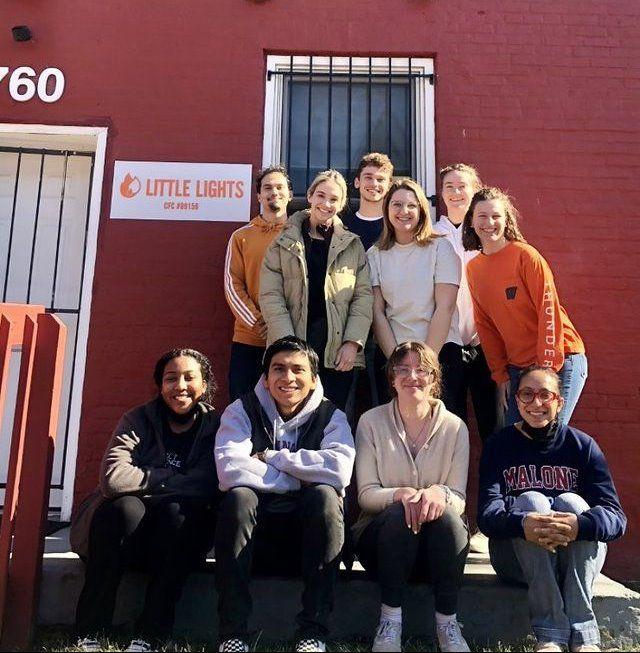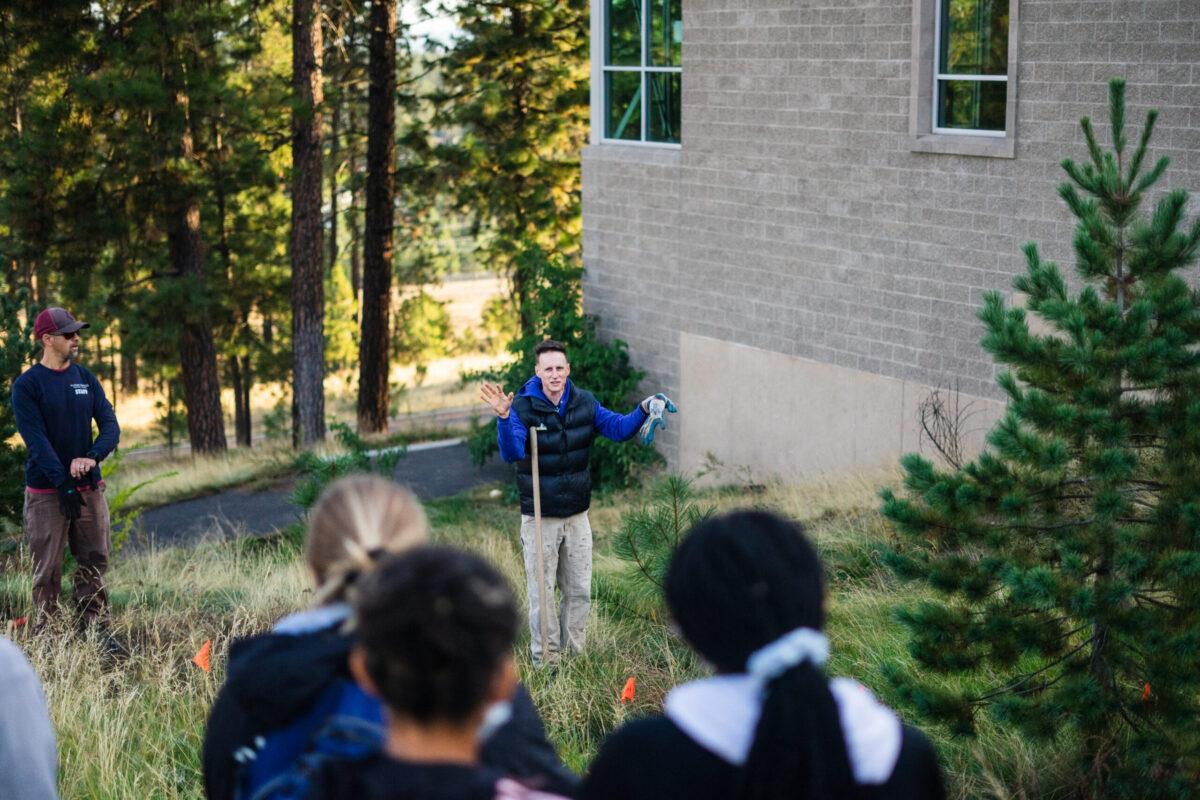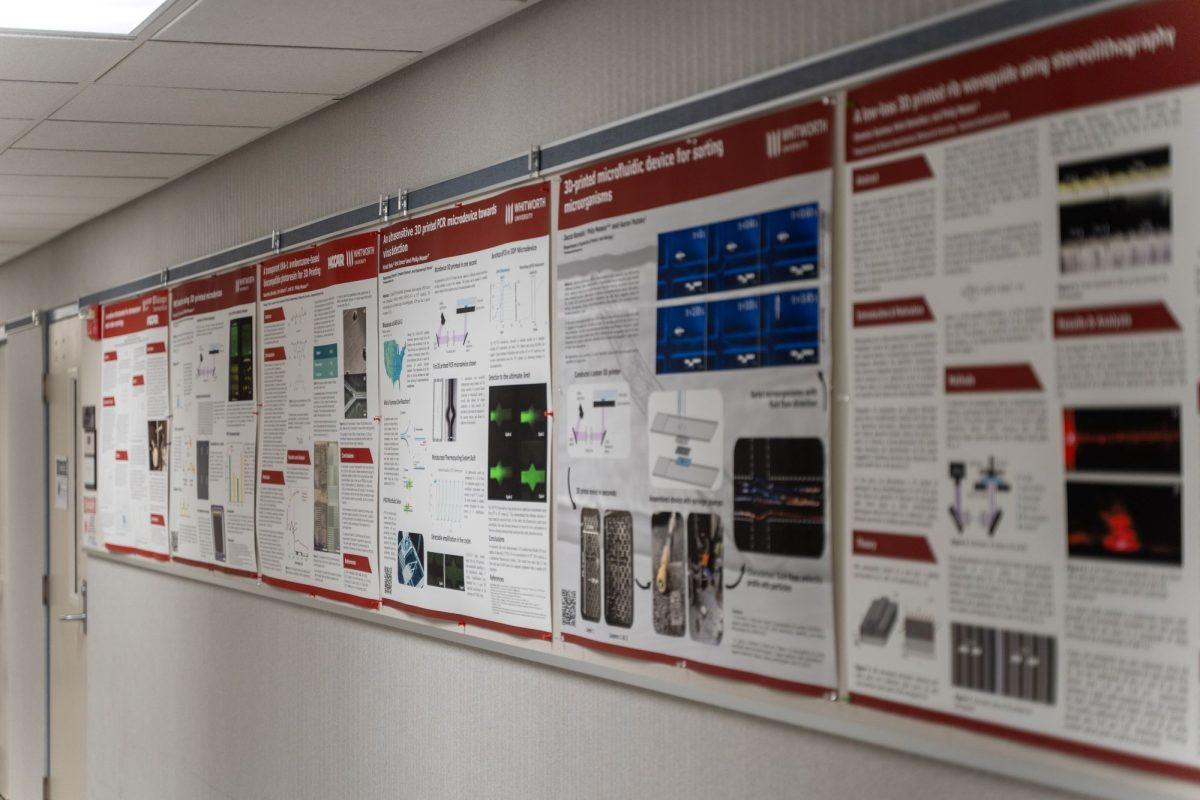Groups of supporters clustered in Mirabeau Point Park, each representing their own artistic outlook to raise awareness for the Spokane 2014 Take Steps 2.65 mile walk on Saturday Sept. 27. Each team, totaling about 120 registered walkers in all, created their own T-shirts and miniature banners to share their story and to urge the growth of awareness.
Inflammatory bowel disease causes two main diseases: Crohn’s disease and ulcerative colitis. Although these diseases are very different, they are both autoimmune diseases where the body attacks its own digestive system. As common as these diseases are, affecting 1.4 million Americans, they lack a cure. Not only have these diseases affected older individuals, but have begun affecting younger children. Severe or mild, it’s a life-altering disease.
Kathy Douglas, national manager for Take Steps, has great hopes for what the future will bring through the growing awareness and donations collected: “I do believe in our lifetime we’ll see a cure,” Douglas said.
A few of the teams were comprised of many younger children who are Crohn’s disease patients. This demonstrates the importance of raising awareness and providing education throughout the nation, among all ages, so patients have the tools they need to live with this life altering disease.
“I feel like people have been afraid to tell their story. Like breast cancer, it just isn’t something people feel compelled to talk about,” Douglas said. “Our company has given people the voice they need to share their story.”
Crohn’s and Colitis Foundation of America (CCFA) established the Take Steps program six years ago to raise awareness of the disease nationwide. There are 145 walks per year all over the nation and CCFA is optimistic in seeing the growth continue.
“We are still a young and small event compared to March of Dimes or some of the other larger walks.” Douglas said. She described a steady growth across the board for each event and recapped that just last year alone they raised $ll million.
Douglas emphasized the importance of how the money raised is broken down for spending. For every dollar raised, 82 cents goes toward the mission. The mission mainly consists of research, but also includes educational resources of the diseases to the public through classes, call centers, and online websites. The leftover money is distributed between the faculty members as salary.
“For a nonprofit, that’s quite amazing,” Douglas said.
From this event alone, the teams have raised $22,000 donations online, doubling last year’s amount raised, and with a steady line of personal donations, CFFA was only $800 short of reaching their $25,000 goal. The closing deadline for donations is December, and with the time available, Douglas said she is confident that the Spokane event will achieve their goal.
After all 120 walkers crossed the finish line, they rejoiced with Fiber One bars and bananas at the success of their event. Awards were dispersed among the most successful teams, including, current Crohn’s disease fighter Leslie Busch. She received a first place award for the largest team comprised of 26 participants and third place for the most amount of money raised with $828, just $172 short of her goal.
“I want to thank my team because they are the reason I finished today . . . and this is only my first year of many for the Spokane Take Steps events,” Busch said, giving the first Crohn’s disease testament as she received her award.
The next Spokane event will not be until the end of next September, but there is a Take Steps walk in Seattle coming up in the spring of 2015. If you know anyone with Crohn’s or would just like to support, register to walk in support of all IBD patients. Of course, donations are always welcome. If you would like to help Spokane reach their 2014 goal of $25,000, contact Kathy Douglas at [email protected].











